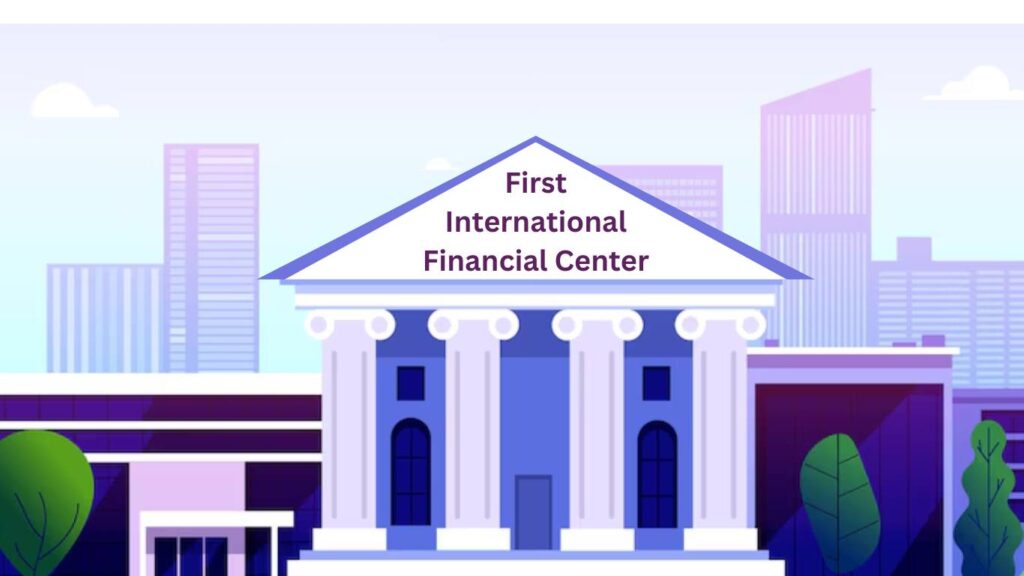
India is on the verge of a significant transformation in its financial landscape with the establishment of the First International Financial Center (IFC). As the world’s largest democracy and one of the fastest-growing economies, India is poised to unlock new avenues for investment, innovation, and global partnerships. The introduction of this financial hub will not only elevate India’s position in the global financial ecosystem but also offer a wealth of opportunities for businesses, investors, and entrepreneurs across the nation.
India’s IFC aims to foster economic growth by enhancing financial services, attracting international investments, and driving innovation in sectors such as Holyscript Online Technology, banking, and asset management. This article will explore how India can leverage this development to strengthen its economy, create jobs, and become a leader in the global financial market, thus shaping the future of investment in the region.
Key Features of India’s First International Financial Center
1. Infrastructure and Facilities
India’s First International Financial Center (IFC) is set to be equipped with cutting-edge infrastructure to meet the growing demands of global financial services. With modern office spaces, advanced communication networks, and facilities designed to support sectors like banking, insurance, Fixed Income Mutual Funds, and asset management, this center will provide an ideal environment for investment and innovation.
For Indian investors and businesses, this sophisticated infrastructure presents a tremendous opportunity to expand their footprint in India’s growing financial markets. Staying updated on the infrastructure developments will help Indian stakeholders make informed decisions for potential investments and partnerships.
2. Legal and Regulatory Framework
India’s IFC will be governed by a robust legal and regulatory framework designed to facilitate business operations and ensure compliance with international standards. This will create an environment conducive for both international corporations and Coyyn Com Business looking to expand their operations within India.
For Indian stakeholders, this simplified regulatory structure presents an opportunity to explore new investment opportunities, enabling smoother cross-border ventures and collaborations with international financial institutions.
3. Business and Investment Incentives
India’s IFC will offer a range of incentives to attract foreign investments, such as tax exemptions, low-cost financing options, and reduced regulatory barriers for investors. These incentives will not only attract global financial players but also provide local businesses with the competitive edge needed to expand internationally. Companies looking to optimize their investment strategies may find value in exploring Best Stocks Under 100 as an additional means of portfolio diversification.
Indian investors and multinational companies can benefit from these incentives, especially when looking to diversify their portfolios or tap into new growth opportunities in India’s emerging financial hub.
4. Global Connectivity and Partnerships
A key feature of any leading IFC is its global connectivity. With enhanced trade relationships, state-of-the-art digital infrastructure, and opportunities for partnerships with other international financial hubs, India’s IFC will provide seamless access to global markets.
Startups focusing on innovative technologies and SaaS SEO Rankstar solutions can explore partnerships within the financial hub, leveraging India’s expanding global connectivity.
Indian companies seeking to expand internationally can leverage India’s IFC to tap into new markets, foster strategic alliances, and strengthen their regional presence across South Asia and beyond.
Benefits of India’s First International Financial Center
1. Economic Growth and Job Creation
The establishment of India’s IFC is expected to generate significant economic growth by attracting foreign investments and creating new business opportunities. As international financial institutions set up operations, the local economy will benefit from increased commercial activity, tourism, and trade. Additionally, the center will create employment opportunities in sectors such as finance, technology, logistics, and legal services. This aligns with the expansion of Distributor and Consumer Management System solutions that streamline financial transactions and commerce.
For India, this represents a major leap forward, as the development of the IFC will provide new avenues for businesses to thrive and create a wealth of opportunities for professionals and entrepreneurs.
2. Attraction of International Investors and Businesses
India’s First International Financial Center will draw global investors seeking access to South Asia’s rapidly growing markets. With a stable financial environment, modern infrastructure, and favorable business regulations, India is positioning itself as a competitive investment destination for multinational corporations and financial institutions. Entrepreneurs looking for sustainable financial planning solutions can also benefit from platforms like Gomyfinance Com Create Budget.
Indian investors and businesses, particularly those looking to expand their presence in the region, can capitalize on early engagement with the IFC to gain access to new markets, expand operations, and diversify investment portfolios.
3. Enhancement of India’s Global Economic Position
India’s IFC will significantly bolster the country’s economic standing globally, positioning it as a major financial hub in South Asia. The center will attract international financial players, enhancing India’s attractiveness as a destination for investments and providing greater global integration. This global positioning is crucial for businesses involved in Worldwidesciencestories Com Innovative Tech Ventures, ensuring they can leverage the country’s expanding influence.
India, already a key regional economic player, can leverage its growing financial infrastructure to create new partnerships, expand trade, and build stronger economic bridges within the South Asian market.
4. Innovation and Development in Financial Technologies (FinTech)
Financial technologies (FinTech) are at the forefront of transforming global financial services, and India’s IFC is expected to play a crucial role in fostering innovation in this space. By providing a regulatory environment that encourages digital payments, blockchain, and cryptocurrency, the center will position itself as a hub for FinTech advancements.
Indian FinTech startups and financial institutions can explore partnerships with firms operating in India’s IFC, potentially opening doors for collaboration, shared technologies, and new business models to address financial challenges and opportunities.
Challenges Facing India’s First International Financial Center
1. Infrastructure and Connectivity Challenges
While India’s First International Financial Center is designed to be world-class, building such a large-scale project will come with challenges. Ensuring seamless connectivity and infrastructure—both physical and digital—will be essential to meet the demands of global financial services. Any delays in construction or in implementing advanced technologies may affect the IFC’s competitiveness. For instance, initiatives such as Radburn Law Election emphasize the importance of structured governance in executing large-scale infrastructure projects.
Indian businesses looking to invest or partner within the center should keep track of the progress and stay flexible as infrastructure developments unfold.
2. Regulatory Hurdles
Although the legal and regulatory framework is being designed to attract international players, challenges may arise during its implementation. Ensuring that regulations align with global standards and are consistently enforced will be crucial to building trust among investors.
Indian investors should monitor the evolving regulatory landscape and seek expert legal guidance to navigate the system effectively and ensure compliance with both national and international laws.
3. Global Economic Competition
India’s IFC will face stiff competition from established financial hubs such as Dubai, Singapore, and Hong Kong. These cities have long been leaders in the financial sector, offering a stable environment and well-established ecosystems.
For India, the rise of global competitors highlights the need for continued innovation and further strengthening of its own financial sector. Indian businesses can learn from the competition and adapt strategies to remain at the forefront of the regional financial market.
4. Risk Management and Financial Stability Concerns
As India’s financial hub grows, concerns about financial stability—especially in a region prone to volatility—must be addressed. Managing risks related to currency fluctuations, inflation, and potential political instability will be essential for the long-term success of the IFC.
Indian businesses and investors must carefully assess risks and stay informed to protect their investments while capitalizing on India’s financial growth.
Future Trends Impacting India
1. Digital Finance and Blockchain Integration
The integration of digital finance and blockchain technologies will continue to reshape the financial sector globally. India’s IFC is expected to embrace these technologies, driving seamless transactions, cross-border payments, and transparency.
Indian FinTech firms can benefit from exploring collaborations with the IFC, fostering innovation in areas like digital payments, blockchain-based solutions, and cryptocurrency.
2. Strengthening India’s Trade Relations
India’s First International Financial Center could catalyze the improvement of trade relations across the region, especially within South Asia. As the IFC attracts global investors, there may be opportunities for joint ventures, investments, and cross-border trade.
Indian businesses can explore these opportunities to expand their regional reach and strengthen ties with key international players.
3. Shift Toward Sustainable Finance
Sustainable finance is becoming increasingly important worldwide, and India’s IFC will likely prioritize eco-friendly financial products, including green bonds and renewable energy projects. This aligns with the global push for sustainability and carbon neutrality.
Indian businesses focusing on sustainable investments will find opportunities to collaborate with India’s IFC on projects that drive clean energy, sustainable infrastructure, and responsible investment.
4. Expanding Regional Financial Networks
India’s IFC will enhance the integration of South Asia’s financial markets, creating better opportunities for cross-border investments and partnerships. As regional financial networks grow stronger, Indian investors will benefit from improved market access and capital flow across borders.
Indian businesses should keep an eye on these expanding networks, as they could present new opportunities for collaboration and investment in the future.
FAQs
1. How will India’s First International Financial Center benefit Indian investors?
Indian investors can gain access to new investment opportunities, joint ventures, and expanded trade avenues. The IFC will offer tax incentives, a stable regulatory environment, and a favorable business climate for cross-border investments.
2. What challenges should Indian businesses expect when engaging with the IFC?
Indian businesses may face challenges related to infrastructure development, regulatory complexities, and global competition. Staying informed and working with experts will help overcome these hurdles effectively.
3. How will India’s First International Financial Center impact India’s position as a financial hub in South Asia?
India’s IFC will reinforce India’s dominance in South Asia by attracting international investments, creating job opportunities, and promoting economic growth, further solidifying India as a regional financial leader.
4. What role will digital finance and blockchain play in the success of India’s IFC?
Digital finance and blockchain are expected to drive seamless transactions, enhance financial transparency, and enable faster cross-border payments, positioning India as a leader in the evolving financial ecosystem.
5. How can Indian businesses prepare for the rise of the First International Financial Center?
Indian businesses should stay updated on the regulatory framework, understand the incentives offered, and explore opportunities for cross-border collaborations to position themselves as leaders in India’s growing financial market.
Conclusion
India’s First International Financial Center is a landmark development that will transform the country’s financial landscape. With improved infrastructure, global connectivity, and business incentives, India is poised to become a key player in the global financial market. By integrating Fixed Income Mutual Funds, advanced financial technologies, and a streamlined regulatory environment, this IFC will create unprecedented opportunities for businesses and investors.
For Indian businesses and investors, now is the time to explore the potential of the IFC and leverage opportunities to expand operations, optimize investments, and position themselves as leaders in this evolving financial ecosystem.






1 thought on “India’s First International Financial Center: A New Era for Investment”